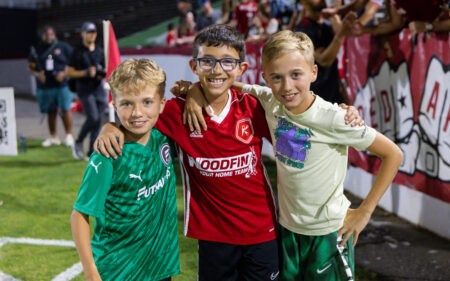From the growing up as the youngest of six kids file, I have two vivid memories of physical punishment at home. Not to bore you with details, but there was a smack from my mother and a swat from my dad.
Both were delivered impulsively. Both were probably deserved – if a five-year-old can make that distinction.
These were not disturbing or repressed memories uncovered years later with the help of a therapist. Both examples have been sitting right there in the cache, along with thousands of other recollections of kisses, cuddles, laughter, and love – all pretty standard stuff that makes up a wonderful childhood. There were probably other times, but I suppose these two memories stick out because of the feelings of embarrassment that came with them. My siblings saw the smack, and neighbor kids saw the swat.
School was a different story altogether. A product of a parochial education, I learned quickly that the nuns’ discipline playbook was much more original than that of my parents. There was Sister Catherine Joseph, who made the boys (because only boys misbehaved back then) stretch their arms out to their sides and hold dictionaries in each of their hands. When those scrawny second-grade arms began to sink under the weight of the thick books, Sister’s eyebrow would raise at a commensurate rate.
But that was many decades ago. Things are different now. At school, certainly. And at home, too, right?
Now, raise your hand if you’ve seen a frazzled parent unload on a preschooler at Target on a busy Saturday afternoon. Nod if you’ve ever had a friend share his or her strategy for discipline and it made you feel a little more than slightly uncomfortable.
The truth is, lots of parents have swatted, smacked, and spanked their children. Some do it consistently as part of a system. Others do it occasionally and on impulse, like my parents did. And there are experts who will tell you there’s no substantial reason to avoid spanking completely.
In fact, I have read reports that say young kids who were never spanked weren’t turning out any better than kids who were disciplined physically. And I also hear parents about my age say things like, “I was spanked and I turned out okay!”
For a long time, research was tricky terrain for social scientists in need of a control group. With over 80 percent of parents having spanked their offspring at some point, it was hard to track down families with kids who had never been spanked. This has been shifting a bit. It seems that about a quarter of parents refrain from using physical punishment in disciplining their children. About half of parents surveyed have spanked, slapped, or hit their child at least once in the past year, with kids ages two to seven most often on the receiving end.
I remember when our oldest was closing in on two and irritating the heck out of me. She had spent months polishing her perfect baby image to perfection and here she was, in toddlerhood, doing everything she could to dismantle it. Indeed, it was time to talk about discipline. We needed a plan. Okay, having just left my full-time office job to work from home, and presumably, make more of these tiny hellions, it was me – I was the one who needed a plan!
Expert research and social science had little to do with our decision to spank or not to spank. In hindsight, I can say with great confidence that the fear-based compliance that the nuns were after was not what we wanted from our children. I can also say now – twenty years later – that I am firmly opposed to the notion of modeling for children that any kind of aggressive behavior produces desired results.
But back then, it was all about our talk.
Our decision not to spank, swat, slap, or hit our firstborn came squarely from a place of introspection. When my husband and I agreed to remove physical punishment from our parenting toolbox, we hoped it would help us avoid situations where discipline might quickly morph into something much different, fueled by, like it or not, anger and hostility.
Instead, we used redirection, natural consequences, positive reinforcement, and the timeout – for Sam and for Mommy, as it turns out! I can absolutely remember counting to ten in the bathroom during a self-imposed cool-down period. Also, for us at least, having another child was the remedy for helping the older child behave. This discipline strategy – can I really call it that? – of ignoring the two-year-old’s antics while attending to the new baby’s needs worked like a charm. If you don’t want another baby, adopting a pet might do the trick!
Ultimately, parents make the rules. No matter where you are on this parenting issue now or how old your kids are, before you decide how to discipline your child – whether to spank or not to spank – first, look into your own hearts. Next, talk at length about what you see there. Only then can you come up with a plan and make a pact with your partner and yourself – then try your darndest to stick with it.







